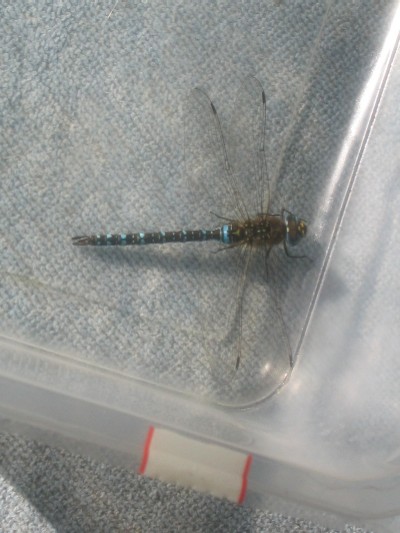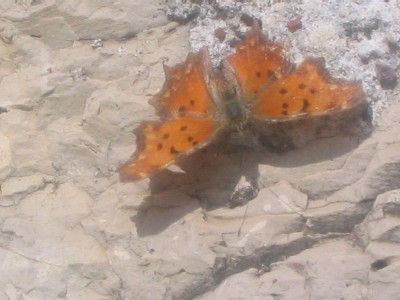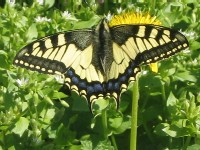CRITICAL WRITING
|

from "To Stand Against Chaos" PN Review 203
This edition of Bernard Spencer’s poetry, together with translations and prose on poetry, is likely to be definitive following from Roger Bowen’s edition of Spencer’s Collected Poems in 1981, which augmented the Alan Ross edition of 1965 with previously uncollected poems and four translations from Eugenio Montale. Peter Robinson has extended the collection with a large selection of translations from George Seferis and a long poem from Odysseus Elytis as well as including more from Spencer’s uncollected poems plus a selection from his occasional and unfinished poems. There are more prose pieces including an obituary note on Keith Douglas and a short article on Lawrence Durrell. Both of these were associated with Spencer in the Middle East during the war publishing together in the magazine “Personal Landscape.”
Robinson provides an excellent introduction to illuminate how Spencer often pushed at the limits of conventional poetic technique, for example, with Spencer’s use of internal rhyme as in “Regent’s Park Terrace” – ‘hourly these unpick / the bricks of a London terrace’. More significantly he explores the source of energy for Spencer’s poetry: “Spenser’s poetry is formed against the pressures of an underlying sense of things being broken up, unconnected, unrelated; and to be accurate to such an awareness his poems must accommodate the pressure of merely accidental proximity of things, even as they work to transform accidental proximity into meaningful structures.” This seems an astute summary of Spencer’s ‘great theme’ and the significance of the many acutely observed objects, to use a term of Durrell’s, in Spencer’s poetry is that they are in their unobtrusive way building a structure to stand against chaos. Where Spencer is most successful the poetry is marvellous as in the second stanza of “Part of Plenty”:
When she puts a sheaf of tulips in a jug
And pours in water and presses to one side
The upright stems and leaves that you hear creak,
Or loosens them, or holds them up to show me,
So that I see the tangle of their necks and cups
With curls of her hair, and the body they are held
Against, and the stalk of the small waist rising
And flowering in the shape of breasts;
How good is his poetry in the span of the twentieth century? A certain diffidence combined with a working life spent abroad, often for the British Council, and some posthumous bad luck affected his reputation. He wrote less prolifically than his 1930s contemporaries although the Complete Poems has few examples of obvious juvenilia. He died in the same year as Louis MacNeice and so was overshadowed by a poet of almost the same age and equal lyrical grace, but greater fame. MacNeice’s fine last collection, “The Burning Perch” was savaged by Ian Hamilton and in the subsequent two years before the first Collected Poems saw the emergence of the posthumous reputation of Sylvia Plath, the sentimentalia of the Liverpool poets and the dominance of critical opinion by Movement and Group figures. To be a poet of Spencer’s generation was to be discredited by the later, weaker work of the major figures of that decade. Neglect of Spencer continued. He is not even mentioned in the ‘comprehensive’ surveys of Eric Homberger, The Art of the Real (1977) or Neil Corcoran’s English Poetry since 1940 (1993). However, a look through anthologies published in the 1950s and 1960s up to Larkin’s Oxford anthology of 1974 reveals that Spencer had an appreciative readership among poets. Robin Skelton’s “Poetry of the Thirties” selects five poems, putting Spencer in a second group after Auden, Day-Lewis, Spender and Dylan Thomas, with Betjeman, Cameron, Empson, Gascoyne, Grigson and Ruthven Todd. Only one of these five poems, the superb “Allotments”, is reproduced in the other anthologies. The editors, who, besides Larkin, were Kenneth Allot, Elizabeth Jennings and Edward Lucie-Smith, appear to have identified a dozen poems that might be considered to be among the better of the first half of the twentieth century.
Spencer’s early poems show an original gift, despite stylistic debts to Auden, for example the omission of definite and indefinite articles. “Poem”, from the section of uncollected poems between 1929 and 1932, shows his mature style with its unusual, unobtrusive collocations, “earth undressed of life”, and conversions often combined with a sound pattern of alliteration or assonance,
Holds all bitterness, littles the will so imperious,
Show to will’s self its dream-weak feet and hands, giant
That clock and sheer machine by which it lives.
Moreover, in these early pieces there is that reservation over a poem’s ability to legislate for mankind, a diffidence his more famous contemporaries did not share. Robinson ascribes this to a lack of confidence in his own gift and quotes Betjeman, “I think a rejection slip would have set him back for years.” Yet there is an ambition in Spencer’s best work to relate a poem to as wide a context as possible. In “Allotments” from the 1930s the lyrical ego is placed in a manner that can be described as Whitmanesque:
Rather it adds
What more I am; excites the deep glands
And warms my animal bones as I go walking
Past the allotments and the singing water meadows.
|
|

THE LONELINESS OF THE LONG-DISTANCE POET:
IVAN LAUČIK 1944-2004
Ivan Laučík , who was born a month before the unsuccessful Slovak National Uprising against the Nazi puppet regime of the wartime Slovak republic and who died in the month that Slovakia joined the European Union, was the least national of poets. To a certain extent he was an exemplar of how the parochial (to steal an idea) evades the limitations of the provincial through a concentration on local particulars. In Laučík's case the parochial furnished a landscape and a prehistory which enabled him to remain true to and refine ideas formed at the beginning of his poetic career.
Laučík may have been forced back on to his local resources, although he does not seem to have regretted a life lived in a small town beneath the High Tatras. The well-worn path for a poet, established between the wars, to Bratislava and perhaps to Prague and a living from editing and publishing was closed to him. In 1963 he was one of the three ' Osamelí bež ci ' (Solitary Runners) with his friends Ivan Štrpka and Peter Repka. They published a manifesto with the title Return of the Angels . Ivan Štrpka writes in his essay Oh Children Smeared with Honey and with Blood "What was fundamental, wholly determining, stimulating, and overriding for us was the radical, unreconciled conflict between sequestration and openness ..... We thought about cultivating perception and sensibility. We invoked strong experiences, sincerity, authenticity, also irony, an open derangement. We said in down to earth fashion that we came from the pure countries of our childhood -- not from a filthy history that they liked to call revolutionary practice." A central metaphor for them was running "... the open poem. It is like solitary running -- the supreme act of the present in the present, an always moving open form that endures until it runs on." Naturally, sentiments such as these could not be disseminated even in the o slightly more liberal conditions of the 1960's. Laučík was able to publish his first two collections of poetry, In Motion within Motion (1968) and We Are Akin at the Beginning (1970). However, official files have long memories and in the period of 'normalisation' following the Warsaw Pact's invasion of Czechoslovakia Laučík was unable to publish for almost twenty years. Štrpka eked out a living in Bratislava writing under pseudonyms, Repka departed for Germany and Laučík remained in his birthplace of Liptovský Mikul áš and spent more or less the rest of his life teaching. Not until 1988 did Laučík publish a third collection, On the Threshhold of Audibility . Two further collections followed On a Flight Path (1991) and what he considered to be his masterpiece , Havránok (1998 , a long poem based on the major archaeological site in the Liptov region. At the end of 2003 his collected poems appeared, but contained no poems subsequent to Havránok.
A professional educator as well as a poet Laučík occupied important local political positions after the Velvet Revolution in 1989 becoming a member of the regional parliament in 1990 and the Director of the regional educational board, before returning to his life as a teacher. Unlike Štrpka and Repka there was no post-revolutionary opening of the floodgates of work, which had accumulated in secret over the years, but rather poems containing a distillation of perception and experience. Critics have praised the clarity of his imagery, but at the same time his poetry resists easy interpretation. There are recurring motifs from the Liptov landscape; the mountain of Krivan, ice, snow , glaciers and crevasses, the movement of water. There is a sense of the ecological vulnerability of the earth although this is not a programmatic element in his work. Laučík could cast a compassionate eye , but it was a bird-like gaze able to make out not only the detail of a landscape, but also its magnetic field. ''Alive you've seen magnificent stirrings. / In the cloudiness of evening / the iridium spike of Krivan / has glowed."
Despite being prevented from publishing for many years Laučík was a poet remarkably free from self-pity. He was proud of having written in a poem just before the Warsaw Pact invasion the lines ''I listen to a cricket under the first snow / how he rakes himself out of the white war -- his voice / will only get weaker". Yet he did not dwell on his subsequent years of enforced silence. Later in the same poem he wrote "The burnings have no end I have much to do / not to draw comparisons ... / I rock to and fro from relief / when water washes out their shining dust in Spring."
Despite the parochial elements in his poems Laučík remained true to the early ideals of the Solitary Runners. In his essay Štrpka writes "Simply, a step perishes, the action lasts. You can continue to try. It is open. What lasts without a firm place is writing. Within it every fixed point perishes." Laučík in Havránok wrote ''... a bird / over the snows! Would it could help me / find a path in the trembling fields / where a footprint will not be fixed.''
Ivan Laučík , alas, arrived at a fixed point on 12th May this year at 5:00 a.m. in his study. He died when his work was beginning to appear in substantial form in the major languages of the world, but before he had gained the international acclaim he undoutedly deserved . A number of us also lost a kind and generous friend.
James Sutherland-Smith
References
Cranberry In Ice: Selected Poems of Ivan Laucík translated by Viera and James Sutherland-Smith, 2001 Modry Peter, Canada
''Oh Children Smeared with Honey and with Blood'' Ivan Štrpka translated by James Sutherland-Smith in Writing Europe edited byUrsula Keller and Ilma Rakusa , 2004, CEU Press, Budapest and New York
|
|
|
|
|
|
|
|
|
|


